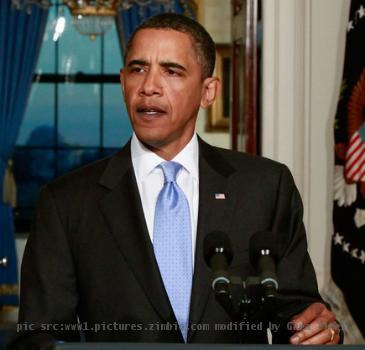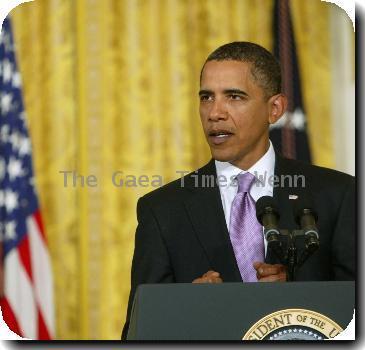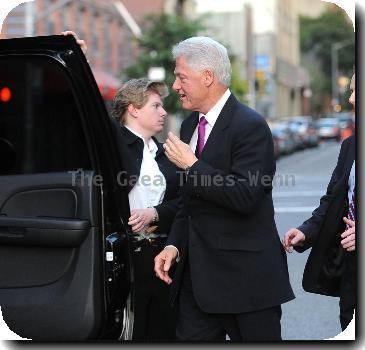Conservatives looking for tea party support in Supreme Court nomination battle with Obama
By Jesse J. Holland, APTuesday, April 13, 2010
Groups look for tea party support on nomination
WASHINGTON — Conservative groups preparing to fight President Barack Obama over his next Supreme Court nomination are trying to recruit tea party activists to their cause, hoping their enthusiasm will help them beat back any nominee that could be too liberal for their taste.
Bringing in the tea party movement — known for its high-energy rallies and protests calling for small government, lower taxes and less spending — would be a coup for conservatives, who were not able to stop the confirmation of Sonia Sotomayor last year.
This time, “you may have a whole new group of activists involved,” said Tom Fitton of the conservative group Judicial Watch.
Obama is considering about 10 candidates for the court and promises to make his choice quickly. His nominee — pending Senate confirmation — would replace Justice John Paul Stevens, who is retiring this summer.
The Associated Press has confirmed that Martha Minow, the dean of the Harvard Law School, is among those under review. An administration official said Tuesday that Minow’s name has come up in discussions within the White House but not at the same level as some of the other candidates under consideration.
The official spoke on condition of anonymity to discuss details of Obama’s private deliberations.
Obama’s other candidates for the court include federal appeals court judges Diane Wood, Merrick Garland and Sidney Thomas, former Georgia Chief Justice Leah Ward Sears, Solicitor General Elena Kagan, Michigan Gov. Jennifer Granholm and Homeland Security Secretary Janet Napolitano.
Minow, a longtime faculty member at Harvard, replaced Kagan as the chief of the law school last year.
In a matter of political protocol, Obama is meeting on April 21 at the White House with senators who will help shape the tone and timing of the confirmation review ahead. Obama will meet with Senate Majority Leader Harry Reid, D-Nev.; Senate Minority Leader Mitch McConnell of Kentucky; Sen. Patrick Leahy, D-Vt., chairman of the Senate Judiciary Committee; and Sen. Jeff Sessions of Alabama, the top Republican on Judiciary.
Not under consideration is Hillary Rodham Clinton. White House press secretary Robert Gibbs said Obama “is going to keep her as his secretary of state.”
Conservative groups like Judicial Watch and the Committee for Justice are already gearing up for what could be a summertime fight with the White House and Senate Democrats over Obama’s pick.
Beyond their fiscally conservative principles, the ideology of the people involved in the tea party movement tends to vary dramatically. So far, tea party activists “haven’t been interested in politics,” Fitton said.
Curt Levey of the conservative Committee for Justice said he has been in contact with some tea party leaders trying to explain to them how an Obama judicial nomination affects their cause.
“Are we going to have big or small government? Should the Supreme Court have unlimited power?” he said.
And the health care overhaul? “That’s going to end up in front of the Supreme Court, and if you care whether that bill survives or not, you better care about the Supreme Court,” Levey said.
Thomas, 56, of Billings, Mont., sits on the 9th U.S. Circuit Court of Appeals, the largest of the nation’s appellate courts. It is also considered the most liberal of the nation’s appellate courts.
Timothy Bechtold, chairman of the Montana Bar Association’s federal practice section, said he wouldn’t call Thomas’ opinions “progressive or liberal or anything that could have a consistent tag line.”
“I think that Judge Thomas is judge whose opinions tend to take the course necessary to follow the laws as the facts present them in a case,” Bechtold said.
Thomas was nominated to the federal bench in July 1995 by President Bill Clinton and confirmed by the Senate in January 1996 with no controversy in a voice vote.
He comes from Western roots. He was born in Bozeman, Mont., and has a bachelor’s degree from Montana State University and a law degree from the University of Montana. He worked in private practice in Billings and was an adjunct college law professor there for years before becoming a federal judge.
“He doesn’t carry a liberal nor a conservative bias like some judges do. He shoots straight down the middle,” said Clifford Edwards, who has worked as a lawyer in Billings, Mont., for 36 years.
The background of others under Obama’s review:
—Wood, an appeals court judge in Chicago, has worked at the State Department, the Justice Department and in private practice. Like Obama, she taught at the University of Chicago Law School.
—Kagan stepped down as dean of Harvard Law School to become the nation’s first female solicitor general. Like Obama, she has her law degree from Harvard and taught at the University of Chicago Law School.
—Granholm, the Michigan governor, is a former federal prosecutor and Michigan attorney general.
—Napolitano, the homeland security chief, is a former Arizona governor and a former federal prosecutor.
—Garland, of the federal appeals court in Washington, is a former high-ranking Justice Department official.
—Sears, the first black woman to serve as the chief justice of the Georgia Supreme Court, is now in private practice after a long career on the bench.
Associated Press writers Ben Feller, Natasha Metzler and Sagar Meghani in Washington and Matt Volz in Helena, Mont., contributed to this report.
Tags: Barack Obama, Bill Clinton, Billings, Chicago, District Of Columbia, Higher Education, Illinois, Judicial Appointments And Nominations, Law Schools, Michigan, Montana, North America, United States, Washington











